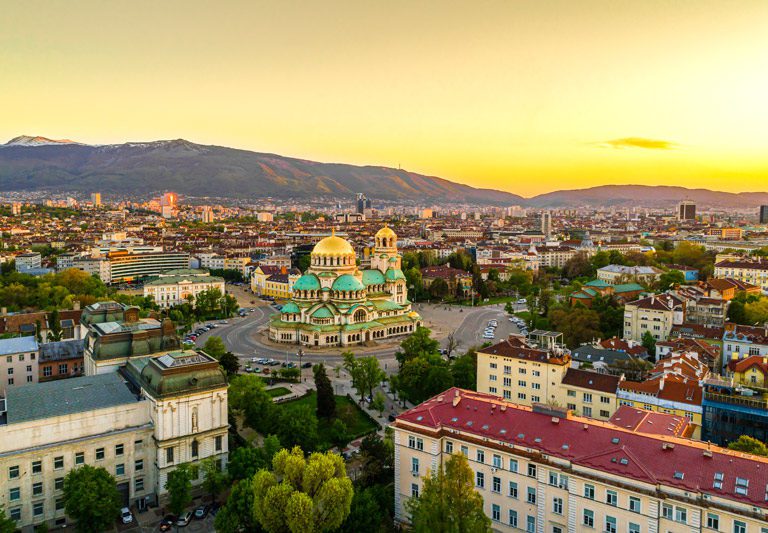Dear Friends
The Covid-19 pandemic is causing fundamental dislocation in the travel and hospitality industries. Hotels in particular are experiencing deep pain as many have had to close and are receiving no revenue at all. They have had to lay off staff and postpone/cancel reservations, while absorbing continuing obligations to pay fixed costs (utilities, insurance, taxes, etc.) and debt service. The downside of the 24-hour revenue cycle is being fully realized.
Winners and Losers
Nobody knows how long the lockdown will last and it will probably be lifted at different times in different regions, but it will cause lasting changes to the hotel industry. The longer the lockdown continues, the more likely alterations in behaviour related to travel will become permanent.
One example is the increased use of videoconferencing, which will have a lasting impact on business travel as companies become more accustomed to this form of meeting and communicating. It is uncertain how much this will impact the business segment, but there will be a higher threshold to justify business travel and we should assume it will decline at least in the short/medium term. Further, it may cause a bifurcation in business travel between senior executive travel, which would favour the higher end of the business hotel segment and business travel that is absolutely necessary for location specific reasons, which will support niche properties with location advantages (e.g. proximity to hospitals, universities, transportation hubs, etc.). As a result, the marginal business traveller will disappear, and the midmarket business segment will suffer.
The convention business will also be negatively affected as there will be less appetite to attend large, high density gatherings. This may result in more virtual meetings and trade shows, which would adversely affect the large convention properties over time.
The loss of wealth and income across all socio-economic groups will also cause a significant decline in leisure travel in the near term. For example, instead of taking two long distance holidays a year, people may only be able to afford one. This will reduce overall spending but will also cause consumers to be more discriminating about where they spend their disposable leisure dollars. Substandard leisure properties in secondary and tertiary locations will be affected as a result.
Owners – Prepare for the Worst
Hotel owners have limited options and they just have to do the best with what they have, but there are some immediate actions they should take if their properties are closed.
- Liaise with the management company, if appropriate, and agree a plan, including any waivers required under the management agreement;
- Communicate with guests and provide incentives to return to the properties when they reopen;
- Manage a consistent message with third party OTA’s (online distributors);
- Negotiate forbearance with lenders;
- Review insurance policies for business interruption coverage;
- Communicate regularly with furloughed staff, so they can be remobilized quickly;
- Plan for regular maintenance of their properties to prevent deterioration during the lockdown;
- Conserve cash and negotiate with trade creditors.
The different types of hotel owners will be differentiated in this new environment. The professionally managed and well capitalized owners will survive, but the non-professional and poorly capitalized owners will not. Those in between will struggle.
Lenders – Anticipate and Act Quickly
Lenders are in a challenging position as in many cases they have or will become the beneficial owners of the assets but don’t have the organizational structure and expertise to take control of the properties, which are effectively operational businesses. The default position (Plan A) will then be to restructure the loans and hope for the best. This might work in a normal recession, but the long-term dislocation caused by the Covid-19 crisis makes this strategy less viable in many cases.
Banks should start preparing now for onboarding hotel assets. Assets least suitable for restructuring will often be those most adversely impacted as described above (i.e. midmarket hotels targeting the marginal business traveller, convention hotels, and substandard leisure properties). Hotels owned by non-professional owner operators will also be vulnerable. Many hotel operators will likely go into administration, some owners may decide just to walk away and hand the keys to the bank, and other owners will desperately try to renegotiate their debt or delay enforcement. In all cases, banks need a Plan B to take control of and manage these assets as Plan B will likely replace Plan A in many situations.
As they anticipate the cascade of defaults in their hotel exposures, banks should take immediate steps to prepare and respond, including:
- Segment the book by borrower/operator – professional vs. non-professional, likely survivors and non-survivors;
- Segment the book by hotel type/location/competitive position, etc. – winners vs. losers;
- Identify high risk borrowers and properties – assume these properties will ultimately need to be onboarded by the bank;
- Assume some operators will go into insolvency – have a back-up plan for operations;
- Develop a decision tree and work out plan for each asset;
- Prepare asset level business plans before onboarding to accelerate repositioning and sale;
- Be prepared to consider alternative uses for the marginal properties (e.g. health facilities, student housing, assisted living, long term stay, etc.);
- Develop multiple exit strategies for each asset;
- Create an onboarding team and operational capability (internal or outsourced) to take control and manage repossessed assets;
Lenders who act fastest will limit the damage by being in a position to monetize their assets before their competitors, thereby maximizing recoveries and minimizing provisions. This means banks need to be hyper-proactive in managing their hotel exposures as there are numerous operational and competitive threats that can erode the value of their collateral very quickly.
Summary
As a result of Covid-19, a large segment of the hotel industry is facing an existential threat as changes in consumer behaviour, spending power, and business practices will cause fundamental and long-term changes to hotel utilization. Changes in attitudes among business and leisure travellers and additional government regulations affecting the industry will become a drag on revenues for the foreseeable future.
Many properties will become distressed through a decline in revenues and inability to service debt, which will have a material and adverse effect on capital values in the near term. There will be consolidation as the strong players absorb the weak and as lenders repossess assets. The players who survive and end up thriving will be those best prepared to manage through this crisis.
Regards,
Elif Egeli Nisanci
Email: elif.egeli@res-am.com
Tel: +44 (0)7721 732 491
Jon Hodnett
Email: jon.hodnett@res-am.com
Tel: +44 (0)7787 230 727

